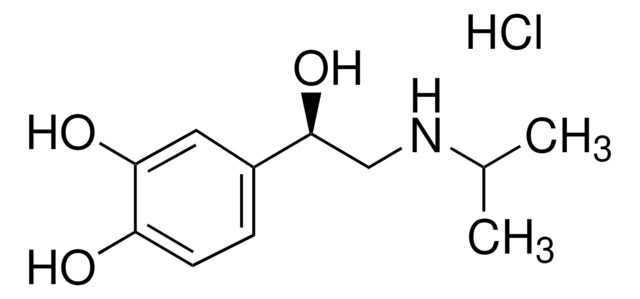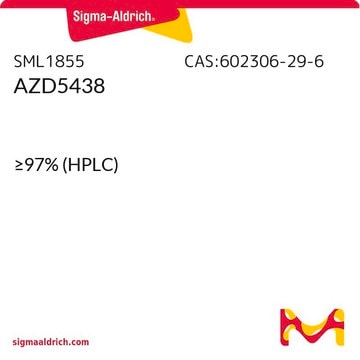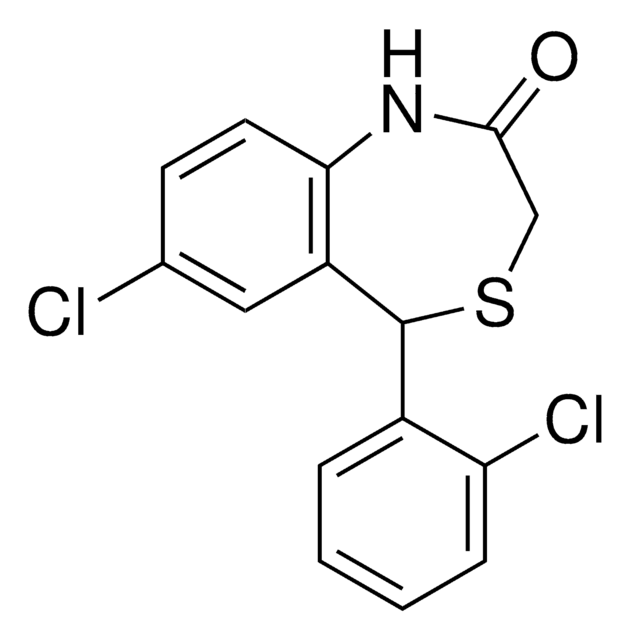M0199
Mdivi-1
≥98% (HPLC), powder, mitochondrial division DRP inhibitor
Synonym(e):
3-(2,4-Dichloro-5-methoxyphenyl)-2,3-dihydro-2-thioxo-4(1H)-quinazolinone, 3-(2,4-Dichloro-5-methoxyphenyl)-2-sulfanyl-4(3H)-quinazolinone
About This Item
Empfohlene Produkte
product name
Mdivi-1, ≥98% (HPLC), powder
Assay
≥98% (HPLC)
Form
powder
Farbe
white to beige
Löslichkeit
DMSO: >20 mg/mL
Versandbedingung
wet ice
Lagertemp.
−20°C
SMILES String
COc1cc(N2C(S)=Nc3ccccc3C2=O)c(Cl)cc1Cl
InChI
1S/C15H10Cl2N2O2S/c1-21-13-7-12(9(16)6-10(13)17)19-14(20)8-4-2-3-5-11(8)18-15(19)22/h2-7H,1H3,(H,18,22)
InChIKey
NZJKEVWTYMOYOR-UHFFFAOYSA-N
Allgemeine Beschreibung
Anwendung
- in embryonic thoracic aorta A7r5 cells to inhibit cell migration and proliferation
- in mitochondrial network reshaping and reactive oxygen species (ROS) production studies in oligodendrocyte precursor cells (OPCs)
- to induce mitochondrial damage in lung fibroblasts
Biochem./physiol. Wirkung
Leistungsmerkmale und Vorteile
Lagerklassenschlüssel
11 - Combustible Solids
WGK
WGK 3
Flammpunkt (°F)
Not applicable
Flammpunkt (°C)
Not applicable
Analysenzertifikate (COA)
Suchen Sie nach Analysenzertifikate (COA), indem Sie die Lot-/Chargennummer des Produkts eingeben. Lot- und Chargennummern sind auf dem Produktetikett hinter den Wörtern ‘Lot’ oder ‘Batch’ (Lot oder Charge) zu finden.
Besitzen Sie dieses Produkt bereits?
In der Dokumentenbibliothek finden Sie die Dokumentation zu den Produkten, die Sie kürzlich erworben haben.
Kunden haben sich ebenfalls angesehen
Artikel
Cell cycle phases (G1, S, G2, M) regulate cell growth, DNA replication, and division in proliferating cells.
Apoptosis regulation involves multiple pathways and molecules for cellular homeostasis.
Unser Team von Wissenschaftlern verfügt über Erfahrung in allen Forschungsbereichen einschließlich Life Science, Materialwissenschaften, chemischer Synthese, Chromatographie, Analytik und vielen mehr..
Setzen Sie sich mit dem technischen Dienst in Verbindung.















